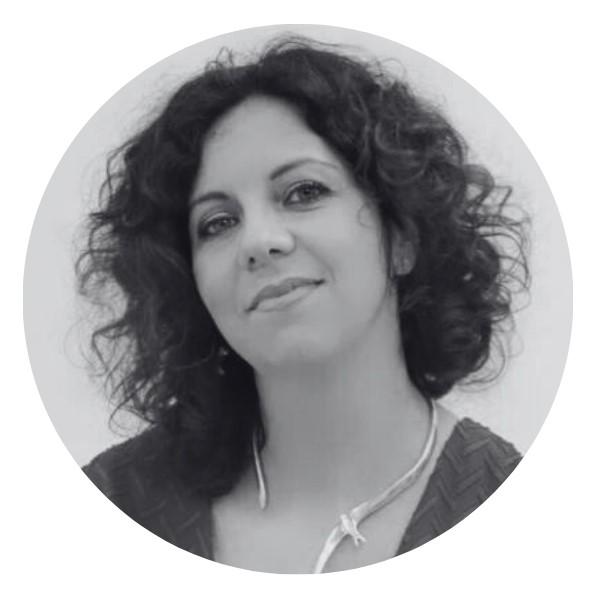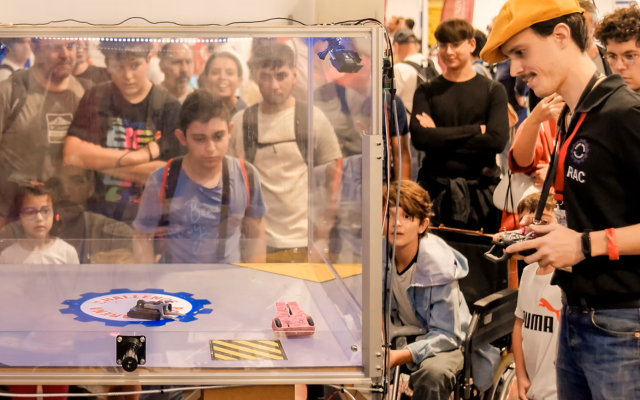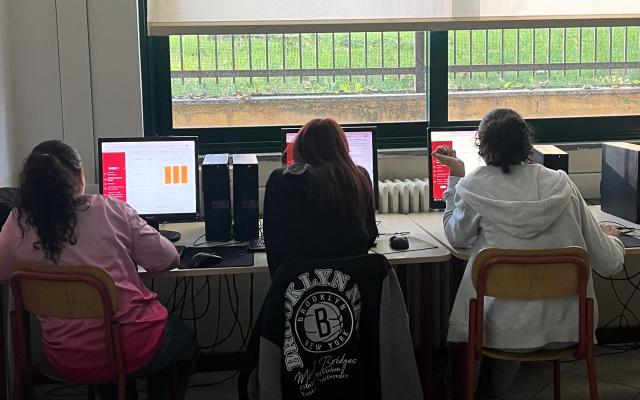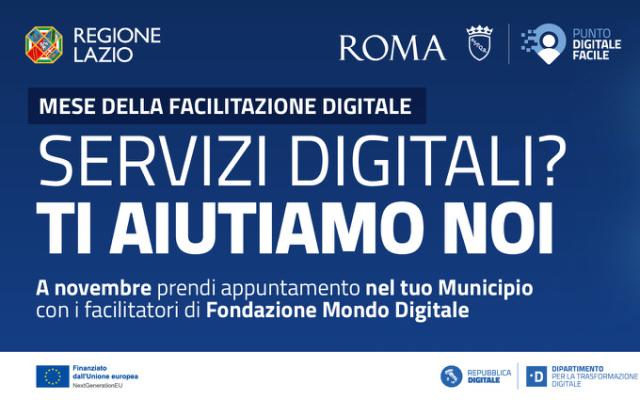Digital Facilitation Month: the stories of Antonia and Ewa
Every day, in Rome's town halls, our digital facilitators meet people of different ages, backgrounds and life stories, but united by the same need: to feel more confident in their relationship with technology. During Digital Facilitation Month, we collected many stories. Some are about courage, others about new beginnings or dreams cultivated in silence. Like those of Antonia, who after a lifetime of work, care and health battles rediscovered her independence thanks to the c; or Ewa, who arrived from Poland with the desire to start over and is now ready to enrol in literature thanks to competent and kind support. Simple and precious stories that remind us how digital inclusion is first and foremost a human experience.
The offices of the IX Municipio are located in a complex of flats across Viale Ignazio Silone, inside a bridge accessible from the side road, accessible via two flights of stairs. The feeling when entering the registry office is that of a familiar environment, where everyone is on first-name terms. There is already a good rapport between the people who arrive and our facilitators Marco and Giovanni.
We gather the story of Antonia, a woman originally from Naples who is in her early seventies and considers Covid a significant watershed in her life, for better or for worse. “Sometimes, looking back, I wonder how I got here... this helps me to control my anxiety about the future of my five grandchildren, and especially about the children of Elisa, my eldest daughter, who is separated and without a steady job”. Antonia got married at 18 years and one day, but her first child arrived when she was little more than a child herself, at 16. ‘I met my husband when I was very young, and we had a happy but troubled marriage. He died young, of a sudden heart attack.’ Since then, Antonia has done everything she can to support her family, not always with regular jobs. Four years ago, she agreed to come to Rome with Elisa and her children, whom she raised together with her. ‘Elisa is separated and has painstakingly rebuilt her love life here in the capital. It would be perfect if she had the job she deserves,’ says Antonia. Meanwhile, shortly after the pandemic, her life was turned upside down by a rare blood cancer, but today she is in remission, thanks to treatment first at the Gemelli Hospital and then at the Regina Elena Institute. ‘I had a bone marrow transplant, I underwent stem cell treatment, I got through chemotherapy and today I am different from before, my body has changed a lot, but I am alive.’ She came to our facilitators with her daughter more than once to activate her CIE and set up the credentials needed to access institutional websites, including the portal for booking medical appointments. Her regained independence has dispelled any fears and mistrust she had towards technology, above all allowing her to make even better use of the same mobile phone she uses every day to send her beloved grandchildren good morning messages and wish them well in their university or school lessons.
Today, perhaps for the last time, she is here to access the INPS online services. ‘Now that I am more independent and feeling well, I want to find a home of my own.’ It is wonderful to witness this courageous decision, over coffee in the company of Antonia and Elisa.
Mrs Ewa is 50 years old. She arrived in Italy from Poland 15 years ago and lives in Rome with her son, who is now enrolled at university. She has always loved Italy and our culture. Although she graduated in chemistry in her home country, Ewa initially worked as a shop assistant and then as a laboratory assistant, but she decided to fulfil a special dream: to enrol in Literature and Philosophy. Technology has never been a big problem for her, but the rapid process of digitalisation intimidates her and the idea of using the CIE ID app to access the university portal slows her down considerably. She arrives during a break from work and asks for help in her excellent Italian. With her PIN and PUK codes, she installs the CIE ID app, configures it and realises how easy it is to authenticate herself. The support of the digital facilitators was important in helping her access the university's student portal and begin the enrolment process. She is now preparing to submit her enrolment application and is getting closer to her dream of studying literature in Italy.
The “month of digital facilitation” is an initiative involving the municipalities of Rome Capital, providing digital assistance and training for citizens throughout November. The digital facilitators, coordinated by the Fondazione Mondo Digitale, are available from Monday to Friday, from 9 a.m. to 1 p.m., in five municipalities per week.
In the second week of Digital Facilitation Month, from 17 to 21 November, the centres operating in the municipalities are as follows:

Hours: Monday to Friday, 9 a.m. to 1 p.m.
Citizens are free to visit their local municipality to receive personalised support from the digital facilitators of the Fondazione Mondo Digitale, who are ready to guide them step by step in the use of online public services.
The story is by Onelia Onorati, press office of the Fondazione Mondo Digitale. 



